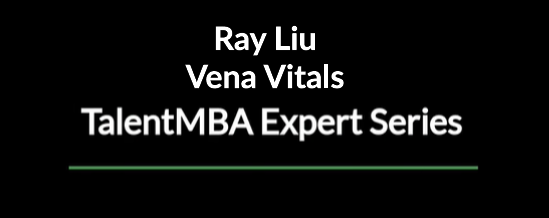Ray Liu: Like any startup, there are numerous potential exit paths and I’m not so concerned about any specific path as much as driving value for the company, which is all about achieving traction and product market fit. In the medtech space, acquisitions are more common because the scale and infrastructure needed to sell medical devices globally is not easy for a startup to achieve quickly. We have the advantage of being able to play in both traditional medtech and home/consumer models, so our exit opportunities may be broader. But the reality is that the market will dictate the best exit based on many external factors outside of our control (timing, comps, industry trends, and global economy, strategic efforts, etc.), so the best I can do is to focus on building value for the company.
Data collection is both a residual of many businesses as well as the core of what businesses offer to market. Any thoughts on how you might be able to scale the user data collection of Vena Vitals into new commercialization areas?
Ray Liu: Data is definitely central to our strategy, because at the core, we are a sensor company, and we see ourselves as much a digital health company as we are a medical device company. In fact, our largest team is the data science team, so it shows how much we care about data. For us, it’s not about amassing giant sets of data and trying to monetize it. Instead, we’re pretty laser focused on solving specific clinical needs, whether that’s in heart failure or sleep disorders, hypertension or hemodialysis, everything for us starts with the clinical question in mind and we then go out there and collect the clinical data to help drive answers and solutions.
You completed an MBA from HBS after working in industry for a few years. In hindsight, how would you asses the value of an MBA in contributing to your professional accomplishments thus far?
Ray Liu: Coming from an engineering background, I think the MBA has been extremely beneficial, especially in two areas: 1) being able to think differently than I was used to and 2) providing an extremely valuable network. As an engineer, I was used to every problem having exactly one correct answer, and HBS and the case method exposed me to the reality that there could be many ways to solve a problem. Even something as black and white as accounting had many layers of gray in between, and it really challenged me to use my judgement and not just settle for what seems like an easy answer. I learned so much just from observing my classmates and the diverse ways that they tackle problems and I think this really opened my eyes in areas that I could improve upon. The network that I gained from HBS has also been invaluable, from angel investments from my classmates to intros to VCs and strategists, to just bouncing ideas and sharing learnings from experiences. It’s a network I tap into throughout my career, both professionally and personally, and I can’t imagine not having such an amazing network.
